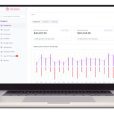The infant formula market has more than doubled over the past decade. But not all companies have managed to keep up, thus making it a lucrative market for the few that have. Infant formula companies, like Bubs Australia (ASX: BUB), saw it as an opportunity to expand into global markets, even becoming one of the few selected companies to supply infant formula to the US during the crisis.
Now, however, Bubs is falling behind. The Company has had a rough quarter, reporting a 1% decline in group gross revenue for H1 FY23 to $37.9 million. In Q2 FY23, revenue fell 28% on Q2 FY22 to $14.3 million. At the same time, the Company burned cash of $13.4 million.
In the first half of FY23, the Bubs portfolio—which contributed 81% of quarterly sales—was down 10% on H1 FY22. The adult goat dairy portfolio, contributing 13%, was down 62%, and B2B was down 62%, representing 6%.
Bubs Founder and Chief Executive Officer, Kristy Carr, commented, “As foreshadowed at the Company’s Annual General Meeting in November, group gross revenues for the first two quarters are largely consistent with the first half of last year, arising from strong year-on-year growth in Australia and the United States being offset by the impacts of China’s now abandoned COVID-zero policy on channel dynamics and consumer purchasing activity.”
Prolonged Covid lockdowns pushed China’s Q2 gross revenue down 66% on Q2 FY22. Still, Bubs made some strides in the country, entering a joint venture agreement with health tech company Zhitong, comprising a supply agreement.
Domestically, it saw a high growth momentum in Australia, as Q2 revenue increased 28% and H1 FY23 was up 23%. Bubs infant formula sales grew at nearly seven times the market growth rate.
Carr added, “Bubs has consolidated its leadership position in the goat infant formula segment, now representing 58% of the total goat formula market in Australia.”
As for its international business, including the US, Q2 revenue was up 26% on the previous corresponding period, with H1 FY23 up 93%. The United States is the second largest infant formula market globally, valued at $7.95 billion. Its recent shortage made it an even more attractive market.
Pointing to Bub’s successful American foray, Carr shared, “Our expedited permanent regulatory pathway into the United States has been confirmed by the Food and Drugs Administration (FDA) in a ‘Letter of Acknowledgement’ received on 20 December 2022. [It] recognises Bubs’ commitment to, and capability to comply with, the FDA’s requisites for permanent access for all six Bubs Infant Formula products by October 2025. Bubs has to date shipped over one million tins to the U.S.”
In the US, the Company is present in over 6,500 stores—including the big four: Walmart, Target, Kroger and Albertsons Safeway—across over 40 states in H1 FY23. Amazon comprised 20% of the offtake sales after only eight weeks of selling the Bubs Infant Formula range. Plus, 94% of the country’s goat milk needs were supplied by Bubs.
In November 2022, the Company also entered into a direct partnership with Concung, Vietnam’s leading Mother and Baby store chain with 750 stores and an 18.5% share of the total infant formula market.
As China relaxes its Covid policy and FDA approval is on the horizon, the Company’s revenue will hopefully bounce back in FY23.
Since the announcement, the Company’s share price has fallen 7.04% to 33 cents per share.
- Ovanti’s iSentric signs contracts worth $14.4m with Malaysian commercial bank - June 27, 2024
- Baby Bunting fights back from retail downturn with 5-year strategy, includes Gen-Z focus and self-funded growth - June 27, 2024
- CLEO meets with US FDA to develop strategy for ovarian cancer test launch - June 26, 2024













Leave a Comment
You must be logged in to post a comment.